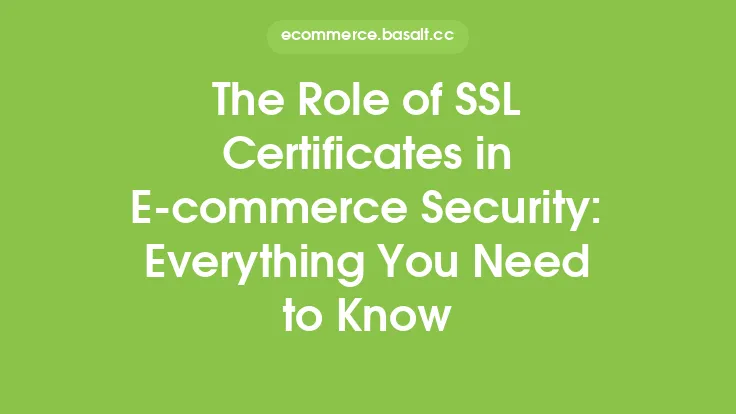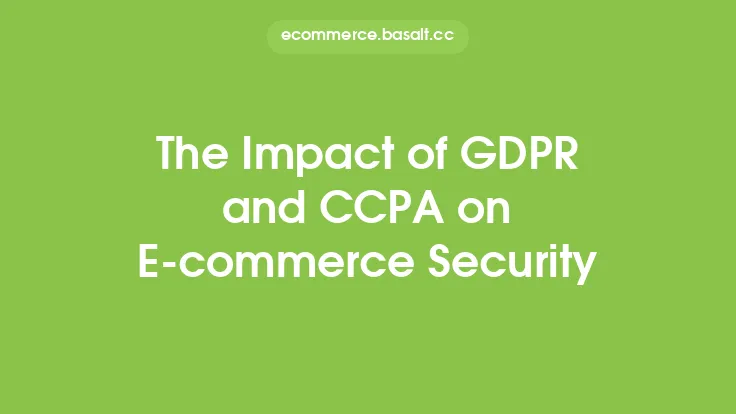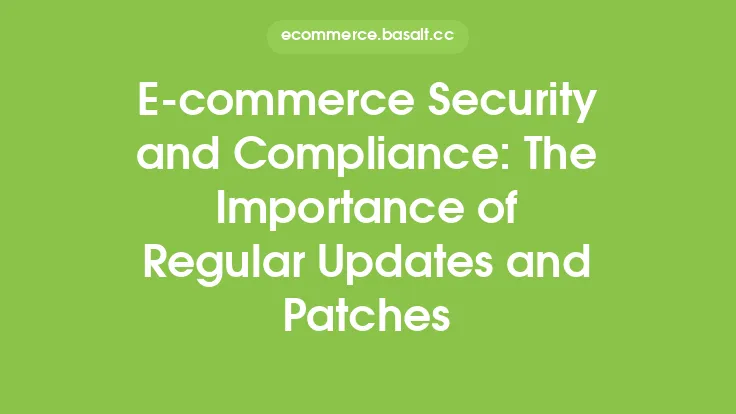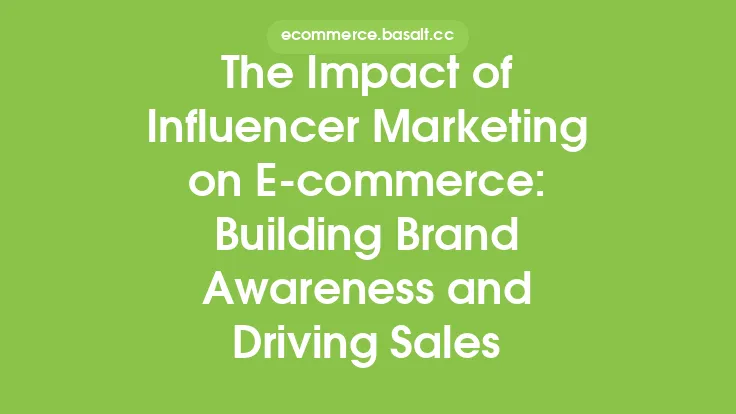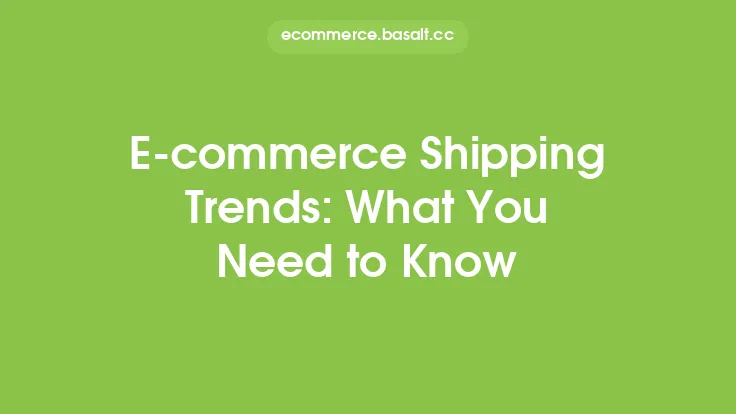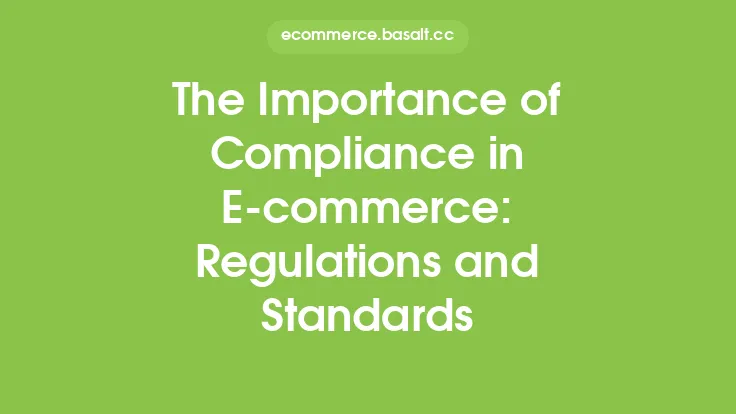The General Data Protection Regulation (GDPR) has significantly impacted the e-commerce industry, particularly in terms of security and compliance. As a regulation that aims to protect the personal data of European Union (EU) citizens, GDPR has set a new standard for data protection and privacy. E-commerce businesses that operate in the EU or have customers from the EU must comply with GDPR, which can be a challenging task. In this article, we will explore the impact of GDPR on e-commerce security and compliance, and what you need to know to ensure that your online store is compliant.
Introduction to GDPR
GDPR is a comprehensive data protection regulation that was introduced in May 2018. It replaces the Data Protection Directive 95/46/EC and aims to strengthen data protection for EU citizens. The regulation applies to all organizations that collect, store, or process personal data of EU citizens, regardless of where the organization is based. GDPR introduces new rights for individuals, such as the right to access, rectify, and erase their personal data, as well as the right to object to processing and data portability.
Key Principles of GDPR
GDPR is based on several key principles, including transparency, accountability, and data minimization. E-commerce businesses must ensure that they are transparent about how they collect, use, and store personal data. They must also be accountable for their data processing activities and ensure that they have adequate measures in place to protect personal data. Data minimization is another key principle, which means that e-commerce businesses should only collect and process the minimum amount of personal data necessary to achieve their purposes.
Impact of GDPR on E-commerce Security
GDPR has a significant impact on e-commerce security, as it requires e-commerce businesses to implement robust security measures to protect personal data. This includes implementing encryption, access controls, and regular security audits. E-commerce businesses must also ensure that they have incident response plans in place in case of a data breach. GDPR also introduces the concept of "privacy by design," which means that e-commerce businesses must consider data protection and privacy from the outset when developing new products or services.
Compliance Requirements for E-commerce Businesses
E-commerce businesses must comply with several requirements under GDPR, including:
- Obtaining consent from customers before collecting and processing their personal data
- Providing clear and transparent information about how personal data is collected, used, and stored
- Implementing adequate security measures to protect personal data
- Appointing a data protection officer (DPO) to oversee data protection activities
- Conducting regular data protection impact assessments (DPIAs) to identify and mitigate risks
- Notifying the relevant authorities and affected individuals in case of a data breach
Consequences of Non-Compliance
The consequences of non-compliance with GDPR can be severe, including fines of up to €20 million or 4% of global turnover, whichever is greater. E-commerce businesses that fail to comply with GDPR may also face reputational damage, loss of customer trust, and legal action. It is essential for e-commerce businesses to take GDPR compliance seriously and implement the necessary measures to protect personal data.
Best Practices for GDPR Compliance
To ensure GDPR compliance, e-commerce businesses should follow best practices, including:
- Conducting regular security audits and risk assessments
- Implementing robust security measures, such as encryption and access controls
- Providing clear and transparent information about data collection and processing
- Obtaining consent from customers before collecting and processing their personal data
- Appointing a DPO to oversee data protection activities
- Developing incident response plans in case of a data breach
GDPR Compliance Tools and Technologies
There are several tools and technologies available to help e-commerce businesses comply with GDPR, including:
- Data protection software, such as data loss prevention (DLP) tools
- Encryption technologies, such as SSL/TLS certificates
- Access control systems, such as multi-factor authentication
- Incident response tools, such as security information and event management (SIEM) systems
- Compliance management software, such as GDPR compliance platforms
Conclusion
GDPR has significantly impacted the e-commerce industry, particularly in terms of security and compliance. E-commerce businesses must comply with GDPR to avoid severe fines and reputational damage. By understanding the key principles of GDPR, implementing robust security measures, and following best practices, e-commerce businesses can ensure that they are compliant with the regulation. It is essential for e-commerce businesses to take GDPR compliance seriously and prioritize the protection of personal data to maintain customer trust and avoid legal and financial consequences.
